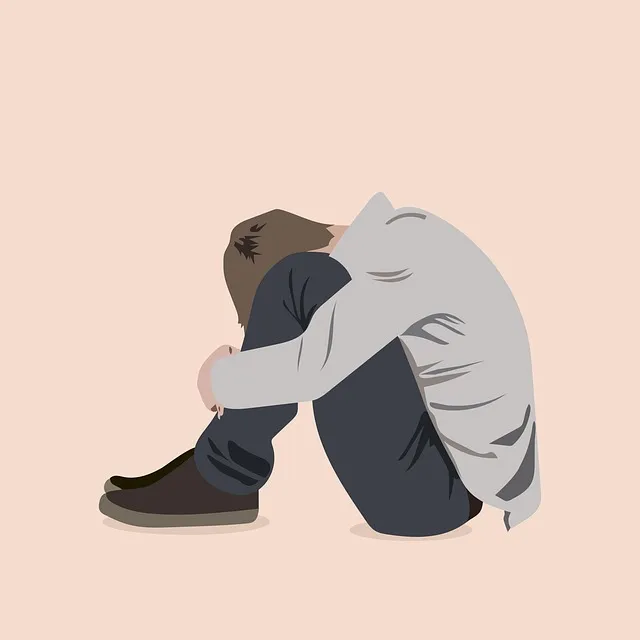Castle Rock, a symbol of refuge for mental well-being, enhances resilience through access to Kaiser's comprehensive mental health therapy services. Using the RFM framework (Risk, Frequency, Motivation), the Mental Wellness Podcast Series offers practical tools for building resilience. Kaiser prioritizes mental health support by addressing individual and community factors contributing to anxiety and stress. However, many still face barriers like limited mental health coverage, particularly in remote areas. Public awareness campaigns and insurance provider expansion, such as online sessions, are crucial. Implementing tailored exercises fosters emotional well-being through open communication and activities like mindfulness and cognitive reframing. Continuous improvement, measured through KPIs, ensures the effectiveness of resilience-building programs, ultimately boosting participants' stress management and mental wellness.
“Uncovering the power of resilience is a transformative journey, and the RFM (Recovery, Flexibility, and Mastery) framework serves as a guiding light. This article explores how RFM exercises are revolutionizing mental health support. We delve into their role in fostering resilience, particularly examining Kaiser’s approach to assessing hidden mental health needs. Furthermore, we analyze Castle Rock’s influence on accessing therapy, offering a comprehensive guide for implementation. By the end, readers will grasp the effectiveness of these practices and their potential to change lives.”
- Understanding RFM and its Role in Resilience Building
- Assessing Mental Health Needs: A Kaiser Perspective
- The Impact of Castle Rock on Accessing Mental Health Services
- Implementing Resilience Exercises: Step-by-Step Guide
- Measuring Success: Evaluating the Effectiveness of RFM Programs
Understanding RFM and its Role in Resilience Building

Resilience is a vital component of mental wellness, enabling individuals to navigate life’s challenges and setbacks with strength and adaptability. Castle Rock does Kaiser cover mental health therapy plays a significant role in fostering this resilience. RFM, or Risk, Frequency, and Motivation, is a framework that helps identify and understand the factors contributing to an individual’s vulnerability or resilience. By analyzing these elements, Trauma Support Services can develop tailored interventions to enhance mental wellness.
The Mental Wellness Podcast Series Production often incorporates RFM concepts to provide practical tools for building resilience. These exercises help individuals recognize their triggers (Risk), assess the frequency of their exposure to stressful situations, and cultivate strategies to maintain motivation during difficult times. This proactive approach, backed by scientific research, equips folks with the skills needed to overcome adversity, ultimately contributing to a more resilient mindset.
Assessing Mental Health Needs: A Kaiser Perspective

At Castle Rock, understanding the importance of mental health support is paramount, and Kaiser’s perspective on this issue offers valuable insights. According to their experts, assessing mental health needs is a crucial step in building resilience, especially during challenging times. The healthcare provider emphasizes that recognizing individual and community-level factors contributing to anxiety and stress is essential for developing effective interventions.
Kaiser’s Crisis Intervention Guidance highlights the need for accessible and tailored therapy services. Given the increasing demand for mental wellness support, their Mental Wellness Podcast Series Production serves as a great resource, providing guidance on managing anxiety relief and fostering resilience. This initiative reflects Kaiser’s commitment to addressing mental health concerns head-on, ensuring that individuals in Castle Rock have access to the care they need to navigate life’s challenges.
The Impact of Castle Rock on Accessing Mental Health Services

Castle Rock, a prominent feature in many communities, has inadvertently become a metaphor for accessing mental health services. Much like reaching a safe haven after navigating turbulent waters, Castle Rock represents a place where individuals can find respite and support for their mental well-being. However, for many, this ‘rock’ remains out of reach due to various barriers. One significant factor is the availability and coverage of mental health therapy within Kaiser or other healthcare networks, especially in remote areas. This is where public awareness campaigns play a crucial role in development; by shedding light on the importance of mental health and demystifying therapy, more individuals will be encouraged to seek help.
The impact of such initiatives can lead to increased demand for services, prompting insurance providers like Kaiser to expand their coverage and resources. For instance, expanding mental health therapy options to include online or remote sessions can improve accessibility, especially in areas with limited professionals. Furthermore, integrating social skills training and self-care practices into these campaigns can empower individuals to take proactive steps towards resilience building, ensuring a more comprehensive approach to mental health support.
Implementing Resilience Exercises: Step-by-Step Guide

Implementing Resilience Exercises: A Step-by-Step Guide
Building resilience is a transformative process that equips individuals with the tools to navigate life’s challenges. At Castle Rock, we understand the importance of mental health support and therapy, especially when it comes to Kaiser’s coverage for these essential services. When designing exercises for inner strength development, follow these strategic steps to ensure effectiveness. Firstly, assess the needs of your participants—whether they’re students, employees, or individuals seeking trauma support services. This understanding will guide the selection of activities that resonate with their experiences.
Next, create a safe and inclusive environment where everyone feels comfortable expressing themselves. Incorporate a variety of exercises, such as mindfulness practices, stress-reduction techniques, and cognitive reframing strategies. Mental health education programs should be designed to foster open communication and encourage participants to share their perspectives. By combining these elements, you’ll facilitate meaningful interactions and promote emotional well-being. Remember, resilience isn’t about avoiding difficult emotions but learning to respond to them in healthy, adaptive ways.
Measuring Success: Evaluating the Effectiveness of RFM Programs

Measuring success is a critical component of any robust resilience-building program, especially when evaluating the effectiveness of RFM initiatives. Organizations like Castle Rock do Kaiser cover mental health therapy, offering valuable resources for individuals seeking support. By integrating structured assessments and feedback mechanisms, the impact of these programs can be accurately gauged. This involves tracking key performance indicators (KPIs) such as participant satisfaction, improvements in stress management skills, and reductions in anxiety symptoms over time.
Regular evaluation allows for continuous improvement, ensuring that RFM exercises remain relevant and effective. For instance, Healthcare Provider Cultural Competency Training and Stress Management Workshops Organization can benefit from gathering qualitative and quantitative data through surveys, interviews, and performance metrics. This data-driven approach enables organizations to identify areas of strength and weakness, making informed adjustments to better serve their communities, ultimately enhancing the overall resilience and well-being of participants.
Resilience is a powerful tool for navigating life’s challenges, and the implementation of RFM (Resilience, Flexibility, and Mastery) exercises has proven to be an effective method in building mental fortitude. As discussed, organizations like Kaiser recognize the importance of addressing mental health needs, and Castle Rock can significantly enhance access to therapy services. By following a structured step-by-step guide, professionals and individuals alike can successfully integrate RFM into their lives. Measuring success through program evaluations ensures that these initiatives are not only reaching their target audiences but also making a tangible difference in fostering resilience, especially when it comes to managing stress and anxiety.






